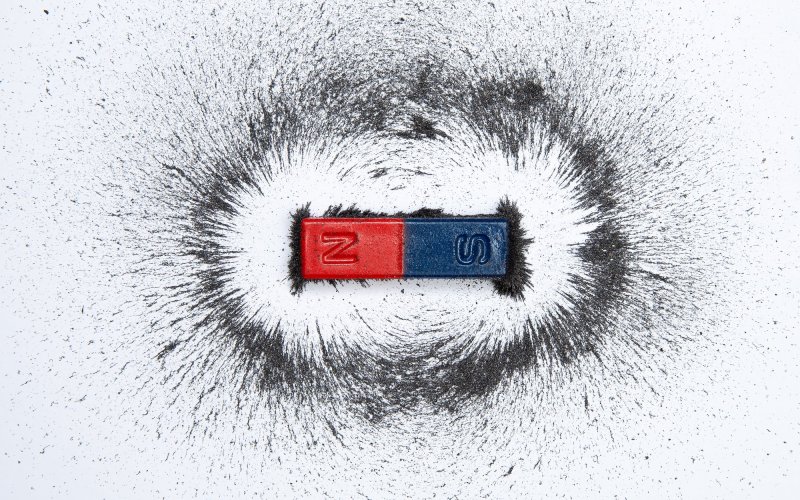Because electricity and magnetism are closely related (they are actually different manifestations of the same phenomenon), the magnetic properties of substances are related to electrons. Each electron is a (very small) magnet. If we manage to arrange these magnets in the same way, the body in which these electrons are will have magnetic properties. In some types of materials (we call them ferromagnets), the electron mini-magnets cluster into larger entities — so-called domains. If we place such a material in a magnetic field, the domains will align in its direction, thus significantly strengthening the magnetic field. After being removed from the magnetic field, two things can happen — the domains return to their original state and the material is no longer magnetic (so-called magnetically soft materials), or the domains remain permanently aligned in the magnetic field and the material remains magnetic (these materials are referred to as magnetically hard).
From magnetically hard materials, we make permanent magnets. As mentioned, their magnetic field is caused by the position of magnetic domains, and as long as we do not change the position of the domains, the magnetic field will remain the same. Therefore, the magnetic field does not “discharge”. It does not require any energy to be generated.
But we are able to eliminate the magnetic field of ferromagnets. Because the particles move due to temperature, the domains break down due to the thermal motion of the particles that contain the domains. When the Curie temperature (which is different for each material) is exceeded, the domains break down due to thermal motion and the substance ceases to be ferromagnetic. For example, for strong neodymium magnets, the Curie temperature is around 300 °C so we must ensure that devices with these magnets do not heat up to this temperature.
Want to ask something?
Send us an e-mail with the subject “Physics mysteries” to the address:
We can't wait to tackle your interesting questions!





